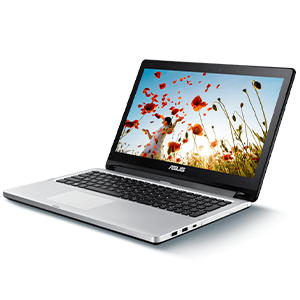
Buying an old laptop can be a smart and cost-effective decision, but only if you know what to look for. Many people assume that a used laptop will be slow or outdated, but with the right approach, you can find a device that performs like new. In this guide, we’ll share expert tips to help you buy an old laptop that offers great performance, reliability, and value for money.
1. Set Your Budget and Priorities
Before you buy an old laptop, it’s essential to determine your budget and what you need the laptop for. If you need a laptop for basic tasks like web browsing and document editing, you don’t need a high-end model. However, if you require a laptop for gaming, Video editing, or Software development, you’ll need a more powerful device. Setting a budget helps you narrow down options and avoid overspending on unnecessary features.
Key Tips:
- Decide if you need the laptop for work, gaming, school, or entertainment.
- Research price ranges for used laptops based on specifications.
- Avoid very old models that may struggle with modern software.
2. Choose the Right Laptop Model
Not all used laptops are worth buying. Some brands and models are known for their durability, while others have frequent hardware issues. When looking to buy an old laptop, consider business-grade models from brands like Dell, Lenovo, and HP, as they are built to last longer.
Key Tips:
- Look for business laptops like the Lenovo ThinkPad, Dell Latitude, or HP EliteBook.
- Check processor models (Intel i5/i7, AMD Ryzen) to ensure they can handle modern tasks.
- Avoid laptops with less than 8GB RAM unless you plan to upgrade.
3. Inspecting the Laptop Physically
A used laptop may have physical wear and tear, but certain damages can affect usability. Before you buy an old laptop, check the screen, keyboard, trackpad, and body for signs of damage.
Key Tips:
- Look for screen defects like cracks, dead pixels, or backlight bleeding.
- Ensure the keyboard and trackpad work properly without missing keys or delays.
- Check for loose hinges, damaged USB ports, and overall build quality.
4. Checking Hardware Performance
Even if the laptop looks good externally, it’s crucial to test its internal performance. A slow or overheating laptop may indicate deeper hardware issues. Before you buy an old laptop, run tests to check its performance.
Key Tips:
- Use free tools like HWMonitor to check CPU temperature and battery health.
- Run a speed test to see how quickly the laptop boots up and loads programs.
- Ensure that Wi-Fi, Bluetooth, and the webcam function correctly.
5. Verifying the Software and Security
Many used laptops may come with pre-installed software, but some might have viruses or unnecessary programs. Before you buy an old laptop, ensure the system is clean and secure.
Key Tips:
- Reset the laptop to factory settings or install a fresh operating system.
- Remove unnecessary bloatware to improve speed and performance.
- Install antivirus software to check for malware.
6. Upgrading for Better Performance
One of the best ways to make an old laptop work like new is by upgrading its components. Simple upgrades can significantly boost speed and responsiveness.
Key Tips:
- Replace the hard drive with an SSD for faster boot times.
- Upgrade the RAM for better multitasking capabilities.
- Clean the internal fans and apply new thermal paste to prevent overheating.
7. Where to Buy a Reliable Used Laptop
When looking to buy an old laptop, choosing the right seller is crucial. Some sellers offer refurbished laptops with warranties, while others sell as-is, with no guarantees.
Key Tips:
- Consider trusted platforms like Amazon Renewed, eBay, and certified refurbishers.
- Check for return policies and warranty options before purchasing.
- If buying locally, meet in a safe place and test the laptop before paying.
8. Negotiation Tips to Get the Best Deal
If you’re buying from an individual seller, negotiating the price can help you save money. Many sellers expect buyers to bargain, so don’t be afraid to ask for a discount.
Key Tips:
- Research the market price of the laptop before making an offer.
- Point out any defects or missing accessories to negotiate a lower price.
- Be polite but firm—don’t rush into a purchase without considering alternatives.
Conclusion
Buying an old laptop can be a great investment if you know what to look for. By following these tips, you can find a used laptop that performs like new while saving money. Always inspect the device, test its performance, and consider upgrades to enhance its lifespan. Whether you’re looking for a budget-friendly work laptop or a powerful gaming machine, making an informed decision will ensure you get the best value.
Would you like any modifications or additional details on a specific section?

